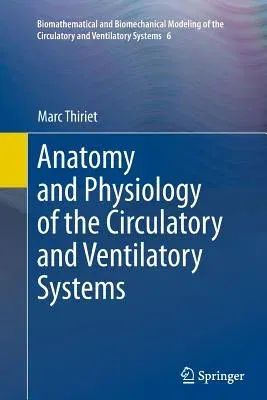Marc Thiriet
(Author)Anatomy and Physiology of the Circulatory and Ventilatory Systems (Softcover Reprint of the Original 1st 2014)Paperback - Softcover Reprint of the Original 1st 2014, 23 August 2016

Qty
1
Turbo
Ships in 2 - 3 days
In Stock
Free Delivery
Cash on Delivery
15 Days
Free Returns
Secure Checkout

Part of Series
Biomathematical and Biomechanical Modeling of the Circulator
Print Length
585 pages
Language
English
Publisher
Springer
Date Published
23 Aug 2016
ISBN-10
149395203X
ISBN-13
9781493952038
Description
Product Details
Author:
Book Edition:
Softcover Reprint of the Original 1st 2014
Book Format:
Paperback
Country of Origin:
NL
Date Published:
23 August 2016
Dimensions:
23.39 x
15.6 x
3.1 cm
ISBN-10:
149395203X
ISBN-13:
9781493952038
Language:
English
Location:
New York, NY
Pages:
585
Publisher:
Weight:
834.61 gm